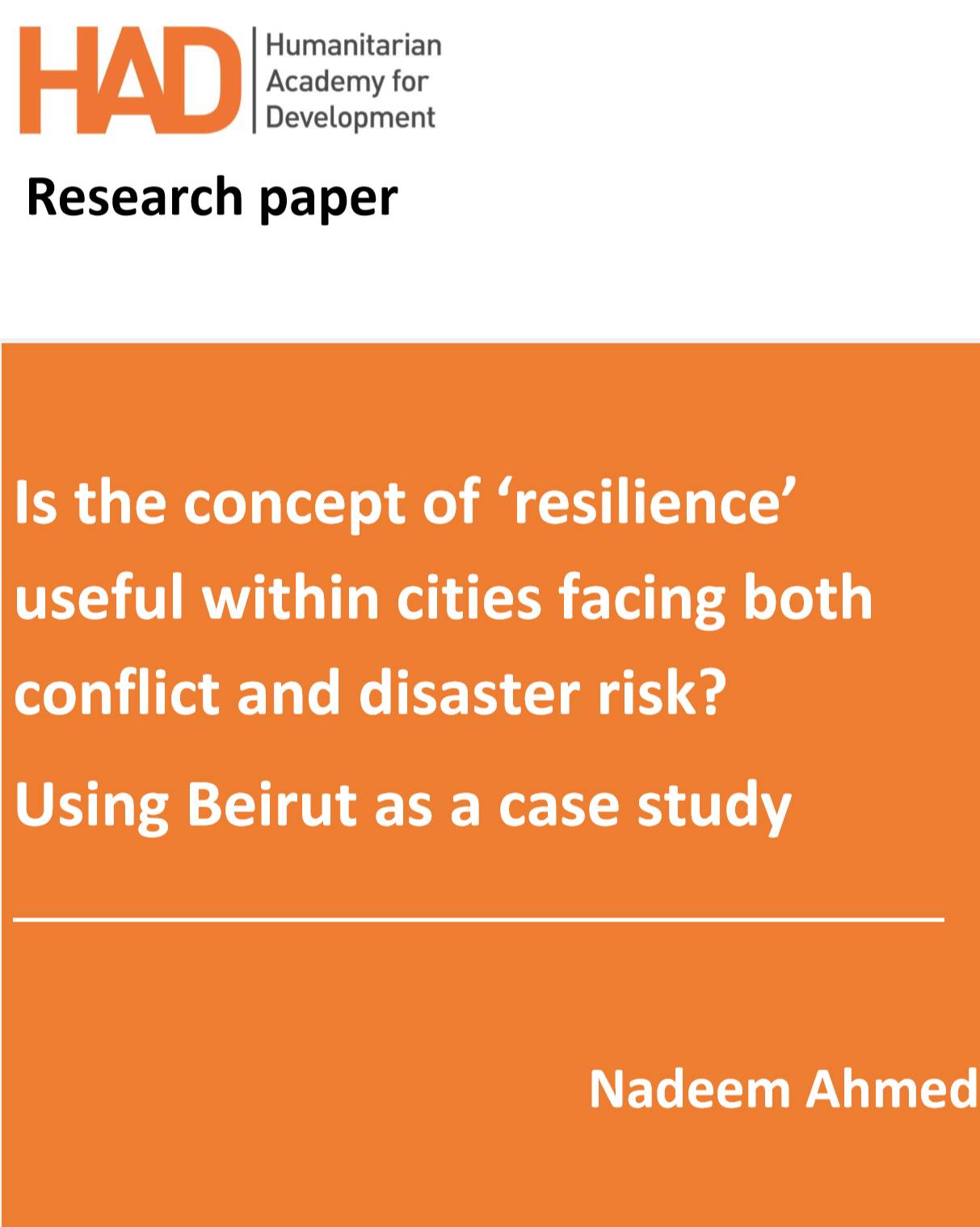
‘Resilience’ and Conflict and Disaster Risk: Using Beirut as a Case Study
Executive Summary
It is now widely recognised that disasters are not exogenous extreme events which cause catastrophe but the structural failure of political, economic and social systems.
It has been all too easy to demonise hazards as the cause of vulnerability, but hazards only become catastrophic disasters when people in power fail.
Thus, international bodies such as UNISDR have sought to create treaties that encourage governments to mobilise against these threats, such as HFA and its upcoming incarnation HFA2.
However, responses have been sluggish, with only half of the governments which agreed to implement the recommendations returning progress updates.
Progress has been made however with the concept of ‘resilience’ gaining traction and commentators calling for more ‘radical action’ to be taken against vulnerability creation, particularly with regards to its more progressive approaches.
Using a social constructivist approach to programmes I will investigate these progressive approaches of ‘resilience’ which have been applied to contexts of both conflict and disaster.
Using Beirut as a case study I discover that it is people, power and politics that indeed pose more of a threat to vulnerability than the hazards the country holds.





